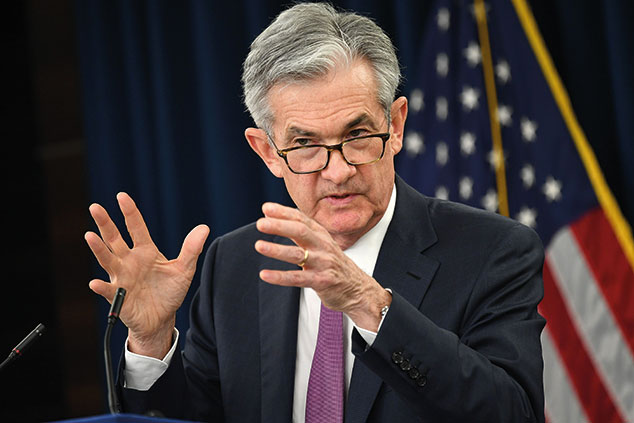
Nor is China in any mood to back down, note Andrew Batson and Chen Long for Gavekal Research. For his part, Chinese leader Xi Jinping has referred to a “new Long March”, but the metaphor is “not a very encouraging one… only a fraction of the soldiers who started the Long March survived”.
So far, commodities markets have been one of the most notable casualties of the deterioration in trans-Pacific relations. Oil recorded its biggest weekly loss of the year, with West Texas Intermediate prices plunging 6% in a single day. Concern that global growth will slow has also hit copper prices. The industrial metal, a good proxy for the health of the world economy, has given back nearly all of its gains for 2019, after falling 9% from a high last month.
Central banks to the rescue?
Yet beyond commodities, trade war-induced Commodities markets have been one of the most notable casualties of the deterioration in trans-Pacific relations, while stockmarket losses have so far been modest., notes Michael Mackenzie in the Financial Times. The MSCI All World Index is only 4.5% below its April high and is up 10% for the year so far. Investors are still betting that China and the US have a limited appetite for mutual punishment and – more importantly perhaps – that “major central banks will keep juicing up the financial system”.
Futures contracts reveal that investors believe there is a roughly 80% chance of at least one interest-rate cut by the end of the year. Yet minutes from the Federal Reserve’s most recent policy meeting showed that the US central bank is content to remain on hold for the time being, writes Nick Timiraos in The Wall Street Journal. Remarks by Fed chairman Jerome Powell suggest it will take more bad news than markets expect to trigger policy easing, says Diane Swonk of Grant Thornton.
However, trade tensions may be prompting a broader reappraisal of the health of the economy, says John Authers on Bloomberg. With the ten-year US treasury yield hitting a 19-month low this week, traders are “back to worrying about stagnation and decline” – despite a strong US labour market. “Call it scaremongering if you like,” adds Paul Ashworth of Capital Economics, but several recent US data releases carried “the unmistakable whiff of a recession.” The Markit manufacturing index hit a near-decade low, while the services index also plumbed three-year depths. Retail and motor-vehicle sales are “weak”. Markets may be betting that this will prompt central bank intervention, but “monetary policy isn’t a magic wand”.
Shocks often erupt after a long build-up, says Mackenzie – “otherwise known as the boiling frog syndrome”. Mortgage and credit excesses had been apparent from 2005, but investors stayed on board to squeeze markets “for a little extra return” before the 2007 crisis. This bull market may have further to run – but as risks mount and valuations remain high, “the frog is getting hot”.